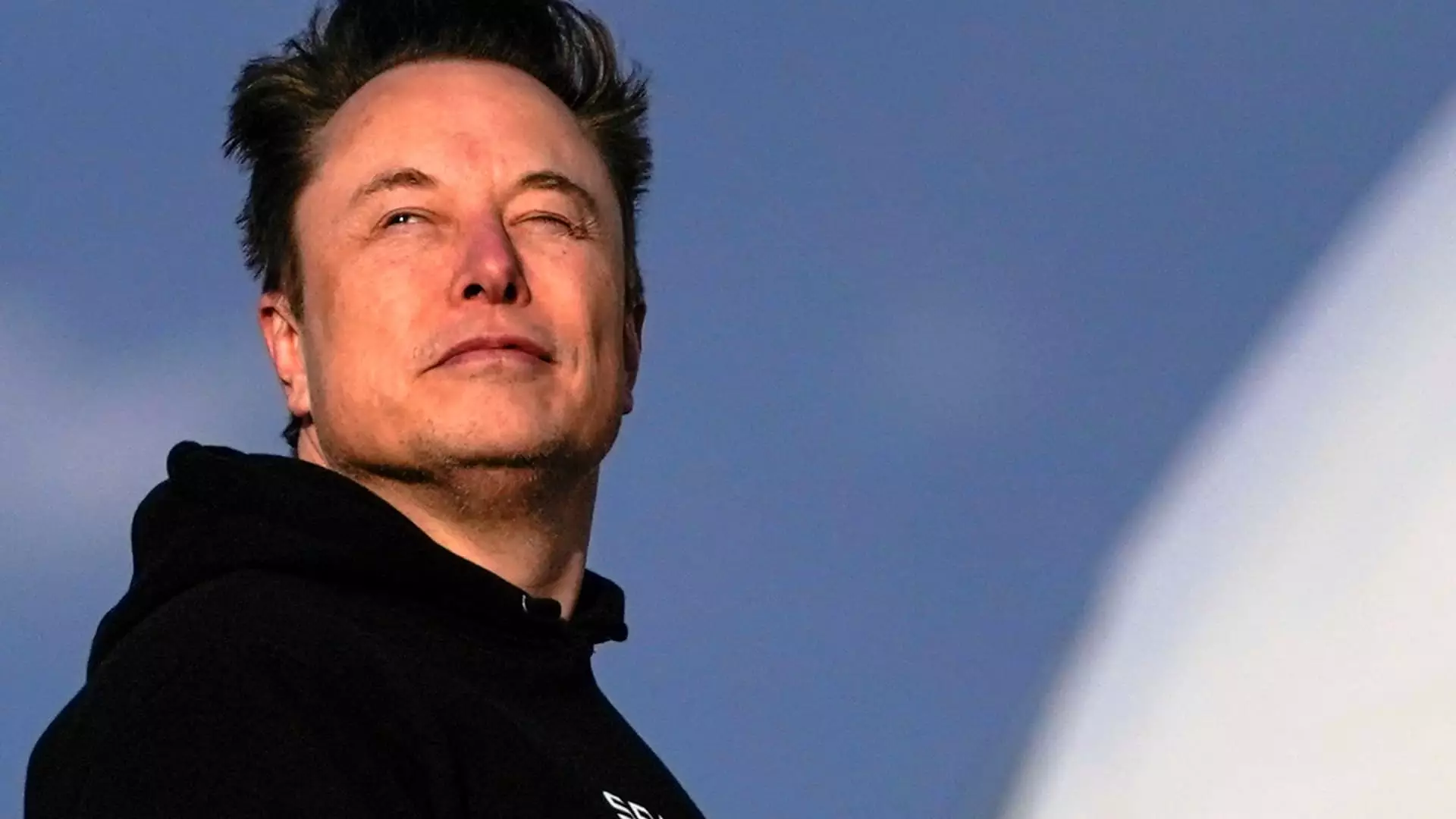Elon Musk, with his characteristic flair for drama, has recently announced a merger between his artificial intelligence venture, xAI, and his social media platform, X—formerly known as Twitter. The transaction values xAI at a staggering $80 billion and X at an equally impressive $33 billion. The merger, framed as a necessary progression in Musk’s ever-expanding portfolio, comes with grand promises of innovation—a promise that many find suspect, considering Musk’s controversial track record and the challenges both entities currently face.
Musk highlighted a vision that intertwines the futures of these two giants. “Today, we officially take the step to combine the data, models, compute, distribution, and talent,” he proclaimed. However, this bold assertion raises significant questions. Is reaching for the stars in AI and social media a bright future or an ill-conceived gamble that prioritizes ambition over pragmatic groundwork?
A Fragile Financial Framework
The financial intricacies of this merger are equally eyebrow-raising. With xAI’s valuation sitting at $80 billion, it seems we may be witnessing an inflated bubble rather than a solid business proposition. The merger hinges crucially on the assumption of $12 billion in debt, reducing the actual purchase price to a net $45 billion. This raises critical apprehensions about the long-term viability of both companies, particularly those facing mounting scrutiny in the AI and tech sectors.
Moreover, stakeholders such as Andreessen Horowitz and Sequoia Capital might be welcoming the prospect of a united entity, but the conflicts of interest run deep. Musk controls both companies, placing this merger within a unique framework of private ownership and shared investors—an arena ripe for potential conflicts and ethical lapses.
In the background lies the reality of a world concerned about AI ethics, particularly in an era where technological missteps can have profound societal impacts. The unrelenting pace at which Musk operates could mean that the checks and balances that mitigate risks may likely be overlooked.
Technological Charge or Chaotic Misstep?
While Musk has undeniably been at the forefront of technological innovation with endeavors like Tesla and SpaceX, the rapid growth of xAI has raised alarm bells among environmental and public health advocates. For instance, the initiative to construct a supercomputer in Memphis has ignited concerns about community oversight and potential ecological repercussions. Critics argue that the facility’s reliance on natural gas and the absence of comprehensive local consultation reflect a rush to market rather than a commitment to responsible development.
Yet Musk’s narrative remains untarnished as he positions himself as a pioneer—a claim vigorously fueled by the visage of progress. The introduction of xAI’s Grok chatbot into the social media ecosystem is heralded as an extraordinary fusion of tech capabilities. However, the question looms: Are we rushing headlong into a future where the consequences of such rapid advancements are ignored?
The Implications of Musk’s Political Maneuvering
In the backdrop of this merger, Musk’s burgeoning influence within the political arena cannot be ignored. His financial contributions to Donald Trump and his new role in the Department of Government Efficiency (DOGE) raise critical concerns. Are we witnessing the intertwining of corporate might with political power in a way that endorses corporate interests over public welfare?
Musk’s position in DOGE grants him substantial leverage over government regulations, opening the door to significant modifications that could favor his enterprises. This symbiotic relationship edges uncomfortably close to corporate governance—leading us to question whether optimal societal outcomes or corporate self-interest will dictate future policies.
Echoes of Past Controversies
Musk’s history is riddled with controversy, from the SolarCity acquisition to various disputes surrounding his business practices. Observing the chain of events and legal challenges surrounding these ventures raises pertinent questions about ethical boundaries and the effects of consolidation. This current merger, much like previous endeavors, signals a potential disregard for preventive measures and responsible accountability.
For many observers, this union seems not so much a harmonious collaboration but rather the latest chapter in Musk’s playbook—a desire to conquer new frontiers without sufficiently weighing the risks. The skepticism surrounding this merger resonates deeply, as the interplay of ambition and ethical governance in a rapidly evolving tech landscape is inevitably fraught with tension.
As Musk embarks on yet another quest for technological supremacy, it’s essential to critique not just the promises of tomorrow, but the often fragile foundations upon which they stand.

